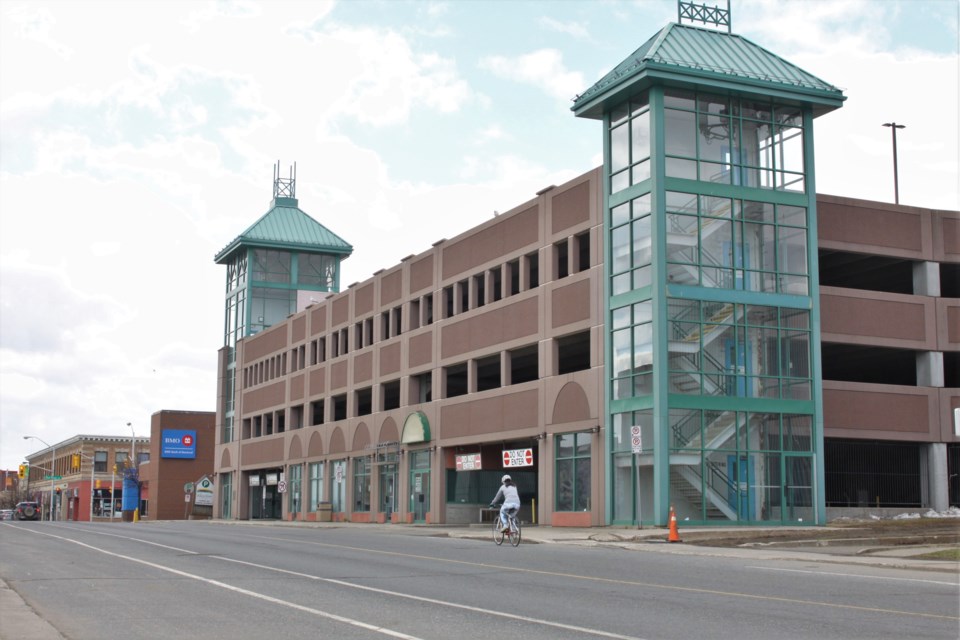THUNDER BAY – City council voted narrowly to examine selling Thunder Bay’s two municipally-owned parkades Monday, but critics argue the move could hobble the redevelopment of the city’s downtowns.
Coun. Brian Hamilton, who also sits on the Parking Authority board, said the parkades could be “important tools” as the city weighs plans to make its downtowns “more human-friendly and less car-centric.”
The change is "quite frankly what the businesses [in the area] are asking for," said Hamilton, who himself owns a business in the Bay-Algoma district.
The redesign of several streets in the downtown north core, including Red River Road, is currently in the planning phase, general manager of development Mark Smith told councillors.
“That will have a significant impact to on-street parking,” he said.
Coun. Aldo Ruberto, who moved the motion for a report on the potential sale, argued the parkades once served a useful purpose, but now mostly supported employees at St. Joseph’s Care Group and the city itself, who make up a large portion of the parkades’ clientele.
Together, the Waterfront District Parkade in the north and Victoria Parkade in the south lose an average of about $380,000 a year, according to a 2020 memo from Smith.
The Victoria Parkade in the south end accounted for over two-thirds of the total losses, with its revenues covering only about half of its operations and maintenance costs. Revenues at the Waterfront District Parkade in the north core, meanwhile, covered about three-quarters of its costs.
Hamilton was optimistic strategies like incremental rate increases at the parkades and plans to stretch maintenance work over longer terms will help staunch those losses in the short term.
Smith also cautioned against evaluating the facilities only based on those figures.
“I would hope that council… would consider far, far more than just cost and revenue information. The more important question in my mind is, should the municipal government play a role?”
It’s “not at all uncommon” for municipalities to own and operate parkades to support downtowns, he said, while some turn a profit.
“I do think it’s worthwhile to get a report on this and see what the numbers actually say,” said Mayor Bill Mauro. “There’s a public good achieved by us having the parkades, but most municipalities don’t provide this sort of service.”
Others said the exercise was a waste of time, arguing the facilities’ chronic financial challenges meant there would be no market to buy them, in any case.
Coun. Rebecca Johnson was typically blunt in her assessment of the debate.
“I don’t need the report,” she said. “It’s not going to happen – who’s going to buy them? I don’t [want] to waste administration’s time.”
Council voted 7-6 to request a report on the sale of the facilities from administration.
Councillors Aiello, Bentz, Ch’ng, McKinnon, Ruberto, Peng, and Mayor Mauro voted in favour.
Councillors Foulds, Fraser, Giertuga, Hamilton, Johnson, and Oliver voted against.
